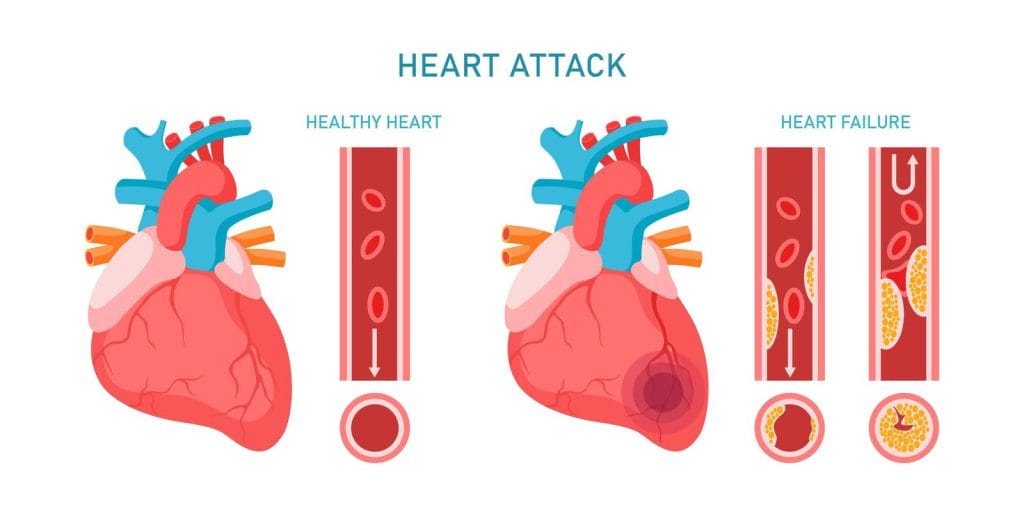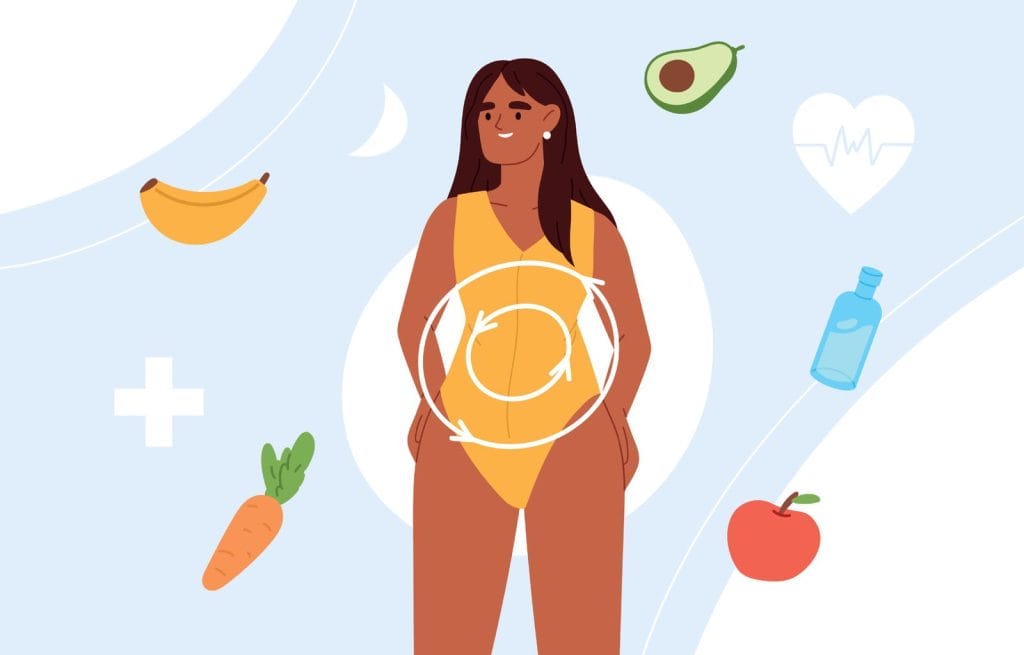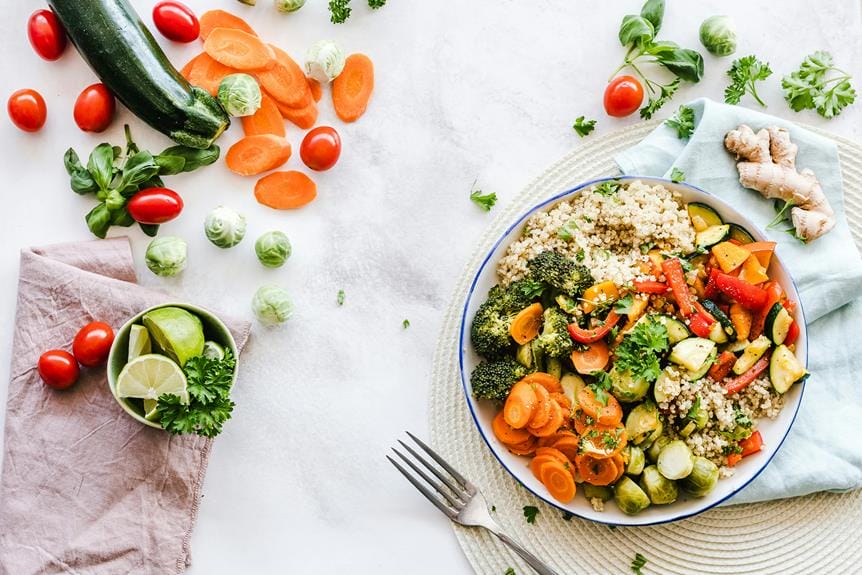Did you know that choosing a plant-based diet could slash your risk of heart disease by a third?
A few years ago, I came across some fascinating facts about how ditching meat can do wonders for your health. I just realized it has been 4 years already, time goes fast!
After that, I changed towards a plant-based diet, where i do not eat meat, try to minimize dairy intake but I’ll admit. I do enjoy eating eggs.
And I understand, it might not be for everyone, or seem like a big complex step. But in my “humble” opinion, it’s not that hard.
Maybe the conversations afterwards may seem a bit hard, but if it is good for your physical health (and mental maybe?), it might be interesting right?
Also, you might not want to believe this, but I actually started to enjoy my meals (even) more.
Okay, okay, I admit. It can sometimes feel a bit cruel when one of my friends is putting some good meat on the grill, but that’s a price I’ll happily pay.
But what’s the secret behind these health benefits? Let’s take a closer look at the nutritional perks of going green and how it can make a big difference in your health.
If You Prefer It Short
- Plant-based diets contribute to improved cardiovascular health by lowering cholesterol and reducing arterial plaque.
- Consuming a variety of plants aids in weight management and reduces the risk of type 2 diabetes.
- A diet rich in fruits, vegetables, and whole grains lowers the risk of certain cancers and chronic diseases.
- Adopting plant-based eating habits can increase life expectancy and have a positive impact on the environment.
What Are the Nutritional Advantages of a Plant-Based Diet?

Switching to a plant-based diet is like finding a hidden gem full of essential nutrients, antioxidants, and fiber. It’s definitely good for you. You can expect things like:
- Higher fiber intake: Plant-based foods are naturally high in fiber, which is important for digestive health, heart health, and blood sugar control. Fiber helps to keep you feeling full and satisfied, and it can also help to lower cholesterol levels.
- Lower intake of saturated fat: Plant-based diets are generally lower in saturated fat than diets that include animal products. Saturated fat can increase your risk of heart disease, stroke, and certain types of cancer.
- Good source of vitamins and minerals: Plant-based foods are a good source of many essential vitamins and minerals, including vitamins A, C, E, and K, as well as potassium, magnesium, and iron.
- May help with weight management: Plant-based diets tend to be lower in calories and higher in fiber than diets that include animal products. This can help you feel full and satisfied on fewer calories, which can lead to weight loss or weight management.
- Reduced risk of chronic diseases: There is growing evidence that plant-based diets can help to reduce the risk of chronic diseases such as heart disease, type 2 diabetes, and some types of cancer.
Eating this way helps your body fight off sickness like diabetes and some cancers. You get a bunch of vitamins and minerals that you mightn’t get from other foods. Plus, lots of fiber means a happy and healthy gut.
Adding more fruits, veggies, legumes, and grains to what you eat also helps lower inflammation. This isn’t just good for now, but it’s like making a smart choice for your future health.
Doest a Plant-Based Diet Improve Heart Health

Eating more plants really helps your heart. It’s almost like your heart gets a little health boost, making you less likely to get heart disease.
And no, I’m not making this feces up, this is from the Journal of the American College of Cardiology. This happens because eating more plants can lower your cholesterol and help keep your blood pressure happy.
Here’s how it works:
- Eating more plants means less plaque in your arteries, which is great for lowering cholesterol.
- It helps your heart pump blood more easily, which is awesome for your blood pressure.
- It also means less swelling in your body, which helps your blood flow better.
Eating more plants isn’t just about saying no to meat. It’s about saying yes to things like whole grains, fruits, veggies, and nuts. These foods are like superheroes for your heart. They’re packed with stuff that fights inflammation and gives your heart the nutrients it needs.
Does a Plant-Based Diet Help With Reduced Diabetes Risk

Yes, switching to a plant-based diet isn’t just great for your heart; it can also cut down your chances of getting type 2 diabetes. Here’s the idea behind it:
- Better insulin use and weight control: Eating mostly plants helps your body get better at using insulin, which is key for keeping your weight in check. This matters a lot when it comes to dodging or handling type 2 diabetes.
- More fiber: Plant foods are loaded with fiber. This keeps your blood sugar steady and your metabolism humming, slashing your diabetes risk.
- Steady blood sugar levels: A diet rich in veggies and fruits means your blood sugar stays balanced. This lowers your chances of running into diabetes problems and makes sure you’re eating right.
Does a Plant-Based Diet Help With Cancer Risk Reduction

Surprise, surprise (and true); switching to a diet full of plant goodies like fruits, veggies, beans, and whole grains can really help cut down your cancer risk.
These foods are really healthy and full of special nutrients and antioxidants that fight off harmful substances in your body. When you pick these over red and (especially) processed meats, you’re making a big move to protect yourself from cancer.
Here’s a quick look at how these plant heroes help:
- Fruits & veggies: They’re loaded with antioxidants and special plant nutrients.
- Beans & whole grains: They’ve fiber that helps get rid of toxins.
- Plant nutrients: These work to block bad stuff and calm inflammation.
- Antioxidants: They take on harmful molecules and stop them in their tracks.
- Less red or processed meat: Eating less means you’re not exposed to certain things that can increase cancer risk.
For me, this makes it even more worth it. But each their own right?
Weight Management

After reading about the plant-based diet’s role in reducing cancer risk, let’s look at how it helps with weight management. Choosing a plant-based diet isn’t only good for the planet and animals but also great for keeping a healthy weight. Here’s how this works:
- Lower BMI and obesity rates: People eating plant-based usually have lower body mass indices and not as many struggle with obesity. This happens because these diets focus on whole foods instead of foods high in fat and processed stuff.
- Calories and fiber: These diets are naturally not so high in calories but pack a lot of fiber (again with the fiber). This means you feel full longer, which can help you eat less and lose weight.
- Healthy weight management: Focusing on plant-based foods helps you keep a healthy weight more easily. It helps you stay away from diseases linked to obesity by avoiding high-fat and processed foods.
Better Digestive Health

As you might have guessed so far, fiber is super important in these diets and it helps keep your bathroom visits regular and easy, building a strong and happy gut.
This way of eating helps the good bacteria in your gut thrive. These tiny helpers are key for breaking down food and getting all the good stuff your body needs.
Eating more plants can also lower the chances of running into annoying belly issues like diverticulosis and irritable bowel syndrome, giving you a smooth(er) ride.
Fruits, veggies, and whole grains aren’t just good for the fiber; they’re packed with stuff called antioxidants and phytonutrients (phytowhatnow?).
These are like your digestive system’s best friends, helping to calm down any inflammation in your gut and keeping things running smoothly.
Lower Blood Pressure

Switching to a plant-based diet can also really help lower your blood pressure, because they’re packed with fiber, nutrients, and natural goodies that help keep your blood pressure in check. Here’s a quick look at why it works:
- Potassium and magnesium: You’ll find plenty of these in plant-based foods. They’re like a tag team for your blood pressure, helping to keep it balanced.
- Antioxidants: These are your blood vessels’ best friends. They help them relax, which makes for better blood flow and a happier heart.
- High fiber content: I feel like this has been explained enough, but it doesn’t make it less true.
All in all: choosing plant-based meals is a smart move to regulate your blood pressure.
Increased Energy Levels

Caring for your heart is super important, but let’s not forget how switching to a plant-based diet can boost your energy big time. I did really notice this myself. I’ll admit, after a few weeks or months, you get used to it and start taking it for granted (at least I did), but I did really experience an increase in energy levels.
Better Skin Health
You get lots of good stuff from plants like antioxidants and phytonutrients. These go getter goodies fight off inflammation and protect your skin from damage, like:
- Vitamins and minerals: Eating lots of fruits and veggies gives your skin important vitamins like C, E, and beta-carotene. These keep your skin healthy.
- Less acne: When you stop eating dairy and processed stuff, you might see fewer pimples.
- Hydration and gut health: Plants have a lot of water which helps keep your skin hydrated. Plus, the fiber in them is great for your gut. A happy gut can mean less eczema and acne.
Environmental Impact
Here’s what happens when you make the change to a plant-based diet:
Cutting down on greenhouse gases:
Raising animals for food sends a lot of greenhouse gases into the air. Methane (CH4) and nitrous oxide (N2O) are greenhouse gases produced in animal husbandry, contributing to global warming and affecting the ozone layer, according to Animal Feed Science and Technology. These gases are bad news for our climate. By choosing plants over meat, you’re helping fight climate change. It’s a big deal!
Saving water and land:
Growing plants takes less water and land than raising animals. Switching to a plant-based diet could save 80% of fresh water and 50% of land area compared to a meat-based diet, according to The American journal of clinical nutrition.
This means we can keep more of our natural resources and stop cutting down forests just to make room for more animals to graze. It’s a win-win for the environment.
Less pollution:
When you go for plant-based foods, you also help cut down on pollution. Animal farms produce a lot of waste, which isn’t great for our planet. By eating more plants, you’re helping keep things clean. However, I could not find any specific percentages on this.
Some NOT So Fun Facts You Might Not Know
- Animal agriculture contributes to 18% of greenhouse gas emissions, surpassing emissions from all transportation sectors combined.
- Meat production is responsible for approximately 14.5% of global greenhouse gas emissions, as reported by the UN Food and Agriculture Organization.
- Producing 1 kg of beef results in about 70 kg of greenhouse gas emissions, more than double the emissions produced by 1 kg of plant-based foods.
- Livestock farming utilizes a substantial portion of the world’s cropland, with over 75% of global agricultural land dedicated to grazing or growing animal feed.
- Beef production is very resource-intensive, requiring 18 times more land, 10 times more water, and 9 times more fuel compared tothe same amount of protein from plant-based sources like beans.
- Transitioning to a plant-based diet globally could potentially slash food-related greenhouse gas emissions by 49-51%. Let that sink in.
- Deforestation, particularly in the Amazon, is significantly driven by the need to clear land for cattle grazing and growing animal feed crops.
- Meat production contributes to environmental issues such as water pollution, loss of biodiversity, and habitat destruction, primarily due to factors like manure runoff and habitat disruption.
Despite these environmental consequences, many consumers remain unaware of the link between meat consumption and climate change, with only a small percentage considering environmental factors when making dietary choices.
Some Feel-Good Facts You Might Need
Here are some sort of positive facts and figures about making the switch to a plant-based diet:
- About 6% of people in the U.S. identify as vegan, marking a significant 500% increase from just 1% in 2014.
- Over half a million individuals joined the Veganuary challenge in 2021, showing a 25% rise from the previous year.
- Retail sales of plant-based foods in the U.S. surged by 11% between 2018 and 2019, reaching a market value of $4.5 billion.
- Transitioning to a plant-based diet can slash your carbon footprint by up to 73%.
- By going vegan, an average person can spare the lives of hundreds of animals each year.
- Even minor changes like cutting out one beef portion weekly can make a significant positive impact on the environment.
- A well-designed plant-based diet can offer sufficient protein, fiber, and most essential nutrients.
- If crops were grown primarily for direct human consumption instead of livestock feed, there would be adequate food to nourish the global population.
So, even if we have a long way to go, there still is some bright light on the horizon. Even if you’re hesitant of making a full switch, just try to go plant-based on a (couple of) day(s) a week. It really does help.
And if you’re into cooking (or eating for that matter), you can definitely expect to eat very well, if you’re willing to try!
Can a Plant-Based Diet Help With Better Mental Health?
Yes, a plant-based diet can contribute to better mental health. Studies have shown that diets rich in fruits, vegetables, whole grains, nuts, and seeds can lower the risk of depression and anxiety. Plant-based diets are typically high in nutrients such as vitamins, minerals, and antioxidants, which support brain health and may improve mood.
What is Mind-full Consumption?
Mindful consumption refers to being aware and intentional about what and how we consume. It involves paying attention to the choices we make, being present in the moment, and considering the impacts of our consumption on ourselves, others, and the environment.
Can You Get Enough Protein With a Plant-Based Diet?
Yes, it is definitely possible to get enough protein from a plant-based diet. Many plant foods, such as beans, lentils, tofu, tempeh, seitan, nuts, seeds, and certain grains like quinoa, contain significant amounts of protein.
What Are Other Ways Nature can Improve Your Well-being?
Spending time in nature has been associated with numerous benefits for physical and mental well-being. Some ways nature can improve your well-being include reducing stress and anxiety, boosting mood and creativity, enhancing cognitive function and attention, promoting physical activity and exercise, and fostering a sense of connection and belonging. Engaging in activities such as hiking, gardening, or simply spending time outdoors can provide these benefits.
How to Cook Healthier and More Sustainable?
To cook healthier and more sustainably, consider the following tips:
- Choose whole, minimally processed plant foods such as fruits, vegetables, whole grains, legumes, nuts, and seeds.
- Make sure you use a variety of colors and textures into your meals to ensure you’re getting a diverse range of nutrients.
- Use cooking methods such as steaming, boiling, baking, and grilling instead of frying to reduce added fats and calories.
- Get sustainably sourced ingredients, such as organic produce and locally grown foods when possible, to minimize environmental impact.
- Reduce food waste by planning meals, storing leftovers properly, and using vegetable scraps to make homemade broth or compost.
- Experiment with plant-based recipes and ingredients to discover new flavors and culinary techniques that support your health and sustainability goals.


